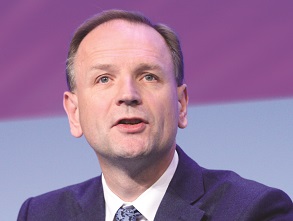News / News review - September 2016
The past two months in healthcare finance
With some providers struggling with finances and demand over the summer, it is worth remembering that July saw a financial and operational ‘reset’ for the NHS in England. NHS Improvement and NHS England launched a seven-point plan to deliver an aggregate deficit of £250m by the end of the current financial year. Their ambition is that providers will begin 2017/18 in aggregate run rate balance.
As well as allocating the £1.8bn sustainability and transformation funds, they announced that national fines will be replaced by trust-specific incentives linked to their improvement trajectories. Every trust and clinical commissioning group has agreed control totals, for which their boards, chief executives and governing bodies will be held accountable. This will be backed up by a new intervention regime for trusts and CCGs not meeting their financial targets, with five providers and nine CCGs immediately entering special measures. There will be new controls to cap the cost of interim managers in CCGs and commissioning support units and to speed up savings in back office, pathology and temporary staffing in providers. Providers have been asked to work specifically on three areas: manage excessive pay bill growth; accelerate implementation of the Carter recommendations on back-office services; and consolidate unsustainable planned care.
The reset was broadly welcomed. HFMA director of policy and technical Paul Briddock said it was a high-profile recognition of the importance of living within resources. But in a blog on the HFMA website, he insisted that implementation must be nuanced. For example, he said, an indication of high pay bill growth should prompt investigations into the causes and context rather than an ‘unquestionable indicator of excessive spending’.
The reset came a few days after the
Commons  Health Committee voiced fears that short-term measures were masking the true scale of the financial problems facing the
Health Committee voiced fears that short-term measures were masking the true scale of the financial problems facing the
NHS in England. In a report on the impact of last year’s spending review on the NHS, the committee said capital to revenue transfers, reviews of balance sheets and the use of ‘accounting devices’ meant the true financial position was not obvious. While it welcomed the spending review decision to frontload additional funding, Impact of the spending review on health and social care said money provided in sustainability and transformation funding was being used largely to ‘plug provider deficits, rather than to resource essential changes to the health and social care system at scale and pace’.
In August, the Nuffield Trust said that even if 
NHS providers make cost savings of 2% a year, there will still be a funding gap of £6bn by 2020. Its report, Feeling the crunch: NHS finances to 2020, said providers had an underlying deficit of £3.7bn at the end of 2015/16. Reducing this to the £2.35bn required by the reset would mean efficiency savings of 4%. Further savings of 4% and 3% would be required in the following two years to reduce the deficit altogether – a level of recurrent savings never before achieved. Providers would require support from the sustainability and transformation fund to balance their positions in the meantime.
In July, the British Medical Association announced that its junior doctor members had rejected the latest contract offer, even though it had received the support of their BMA leaders. In response, health secretary Jeremy Hunt said the deal would be introduced from October for senior obstetrics trainees only. It will then be rolled out across foundation year doctors and other juniors, with all on the new contract by October 2017. Mr Hunt also announced an independent inquiry into reducing the gender pay gap among junior doctors. The juniors are to ask the British Medical Association council to sanction fresh industrial action from this month.
Many juniors oppose the government’s plans to implement seven-day services in the NHS, though they support the broad principles behind them. They insist there are not enough staff to deliver it safely. In August, a leaked Department of Health risk register reportedly showed concern over staff shortages, as well as the lack of detailed costings, risk assessment and limited data supporting the policy. The Department said it was trying to address unacceptable variation in care at the weekend.
NHS England clarified its position following the High Court ruling on the provision of pre-exposure prophylaxis (PREP) for HIV prevention. It said the court ruled that both NHS England and local authorities could commission PREP, but it was appealing the judgement as PREP would cost £10m-£20m a year.
The Scottish government said it will invest £1.1bn in the NHS estate over the next four years. The funding, for major projects, will be supplemented by £290m to support the integration of health and social care, it said. The investment plans are detailed in the Annual state of NHS Scotland assets and facilities report for 2015. This also said backlog maintenance had fallen by more than £110m since 2011 and most of the backlog is in buildings planned for disposal over the next 10 years or in non-clinical parts of the estate.
June’s Brexit vote led to a new prime minister, Theresa May. Despite a cabinet reshuffle, she kept Jeremy Hunt as health secretary. Philip Dunne joins him as care and support minister, with Nicola Blackwood and David Mowatt as junior ministers. Lord Prior remains parliamentary under-secretary for NHS productivity.
Wales health secretary Vaughan Gething has ordered work to begin on implementing a new law on nurse staffing. The legislation puts health boards and NHS trusts under a duty to calculate and maintain nurse staffing levels in adult acute medical and surgical inpatient wards, while considering the number of nurses needed to provide the right care in all settings. Work will begin to develop guidance, which will be followed by a public consultation later this year.
And in Northern Ireland health minister Michelle O’Neill has received a report on the future clinical and financial sustainability of local health and care services. The report, put together by a team led by health reform expert Professor Rafael Bengoa, will be published in the autumn, alongside Ms O’Neill’s vision for the configuration of health and social care.
The reset in quotes
The suite of meausures will  help ensure providers
help ensure providers
facing the greatest financial
challenges are supported to bring about rapid financial recovery, while maintaining or improving quality. This plan is
intended to restore financial discipline and ensure ongoing financial sustainability.’
NHS Improvement chief executive Jim Mackey
 ‘The service has already made unprecedented savings in hugely challenging circumstances. The uncertainty following the Brexit vote is likely to compound financial concerns. Now is an important time for the government and national bodies to assure NHS leaders that a focus on stability does not come at the expense of transformation.’
‘The service has already made unprecedented savings in hugely challenging circumstances. The uncertainty following the Brexit vote is likely to compound financial concerns. Now is an important time for the government and national bodies to assure NHS leaders that a focus on stability does not come at the expense of transformation.’
Stephen Dalton, NHS Confederation chief executive
‘We need a revised approach  to financial
to financial
planning in the long term and a much smaller
set of priorities on which the NHS ruthlessly focuses in the short term, with everything else taking second place. Without these, we cannot even begin to tackle the likely consequences of the middle years of this parliament when available funding reduces dramatically.’
Saffron Cordery, director of policy and strategy, NHS Providers
 ‘We need to use this year
‘We need to use this year
to stabilise finances and kick-start
the wider changes everyone can see are needed.
Most trusts and CCGs know what needs to get done to release funds for local reinvestment in better patient care and now is clearly the time to fire the starting gun.’
NHS England chief executive Simon Stevens
In the media
Summer was not a ‘quiet’ time for the HFMA and media coverage. While the HFMA commented on several NHS financial issues, two stood out.

The HFMA temperature check, published in July, generated much media response, from national papers and broadcasters to trade and regional press. The ITV website reported the survey’s finding that a fifth of finance directors believe patient care will deteriorate over the next year, with concern growing over access and potential cuts in the range of services on offer. Speaking before the financial reset, HFMA policy and technical director Paul Briddock (above, right) told the Mail online that it was unlikely providers would get into aggregate financial balance by year-end, as initially planned. He added that all NHS organisations had to work together to redesign services and put an end to shifting financial issues between sectors.
Mr Briddock provided Public Finance with a comment article on the financial reset. While the plan was welcome, he said there was a danger it could give the impression the service’s financial issues were due to financial management. He said issues such as focusing on 63 providers with significant pay bill growth must be handled sensitively – assuming the growth is excessive is simplistic, though using it to prompt a greater understanding of the causes would be helpful.
Related content
We are excited to bring you a fun packed Eastern Branch Conference in 2025 over three days.
This event is for those that will benefit from an overview of costing in the NHS or those new to costing and will cover why we cost and the processes.